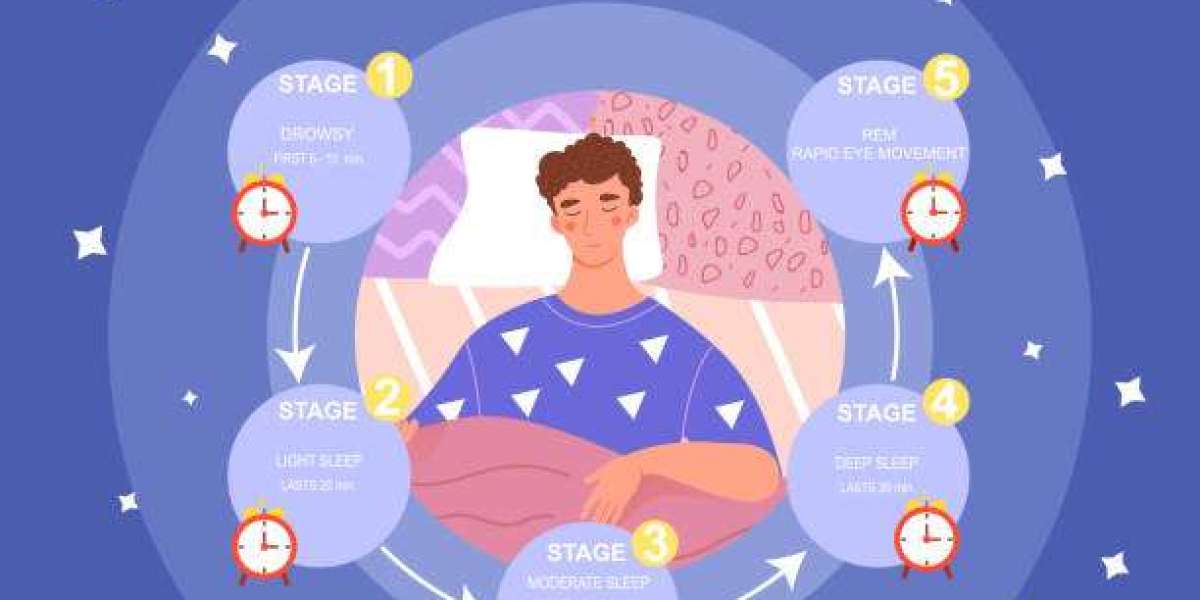Sleep is not a single, uniform state. Instead, it unfolds in a series of structured sleep stages, each with its own characteristics and vital functions. From light drowsiness to deep repair and vivid dreams, our bodies and minds cycle through these phases several times each night — orchestrating rest, recovery, and mental rejuvenation.
The Architecture of Sleep
Sleep is broadly divided into two categories:
Non-REM (Non-Rapid Eye Movement) Sleep
REM (Rapid Eye Movement) Sleep
These categories are further broken down into distinct stages, which the brain cycles through in roughly 90-minute intervals throughout the night.
The Four Main Sleep Stages
Stage 1: Light Sleep (Non-REM 1)
This is the gentle gateway into slumber.
Brain waves slow slightly; muscle activity decreases.
You may drift in and out of awareness and can wake easily.
Lasts only a few minutes.
Stage 2: True Sleep (Non-REM 2)
The body starts to relax more deeply.
Heart rate slows, and body temperature begins to drop.
Brain wave activity features “sleep spindles” and K-complexes — signs that the brain is blocking out external stimuli.
This stage accounts for about 50% of total sleep time.
Stage 3: Deep Sleep (Non-REM 3)
Often referred to as slow-wave sleep or delta sleep.
The deepest and most restorative phase of non-REM sleep.
Blood pressure drops, breathing slows, and the body focuses on physical repair, immune strengthening, and growth hormone release.
Very difficult to awaken someone in this stage.
Stage 4: REM Sleep (Rapid Eye Movement)
Occurs around 90 minutes after falling asleep.
Brain activity increases, almost mimicking the waking state.
Most dreams happen in this stage.
Muscles become temporarily paralyzed (to prevent acting out dreams), while memory consolidation and emotional processing occur.
Sleep Cycle Repeats
A healthy adult typically experiences 4–6 sleep cycles each night. As the night progresses:
Deep sleep (Stage 3) becomes shorter
REM periods become longer and more frequent
This evolution supports both body recovery and brain function — including learning, mood regulation, and creativity.
Why Sleep Stages Matter
Disruption in any stage of sleep can affect overall restfulness and health. For instance:
Missing deep sleep can leave you feeling physically exhausted
A lack of REM sleep may impact memory, mood, and emotional balance
Sleep disorders such as insomnia, sleep apnea, or restless leg syndrome can disturb these natural stages, leading to poor quality sleep despite spending hours in bed.
Conclusion
The sleep stages form a delicate rhythm that the body relies on for full recovery and cognitive performance. Understanding this cycle helps us appreciate not just the quantity of sleep we need — but its quality. Prioritizing habits that support full, undisturbed sleep cycles is one of the most powerful things you can do for long-term health and vitality.



